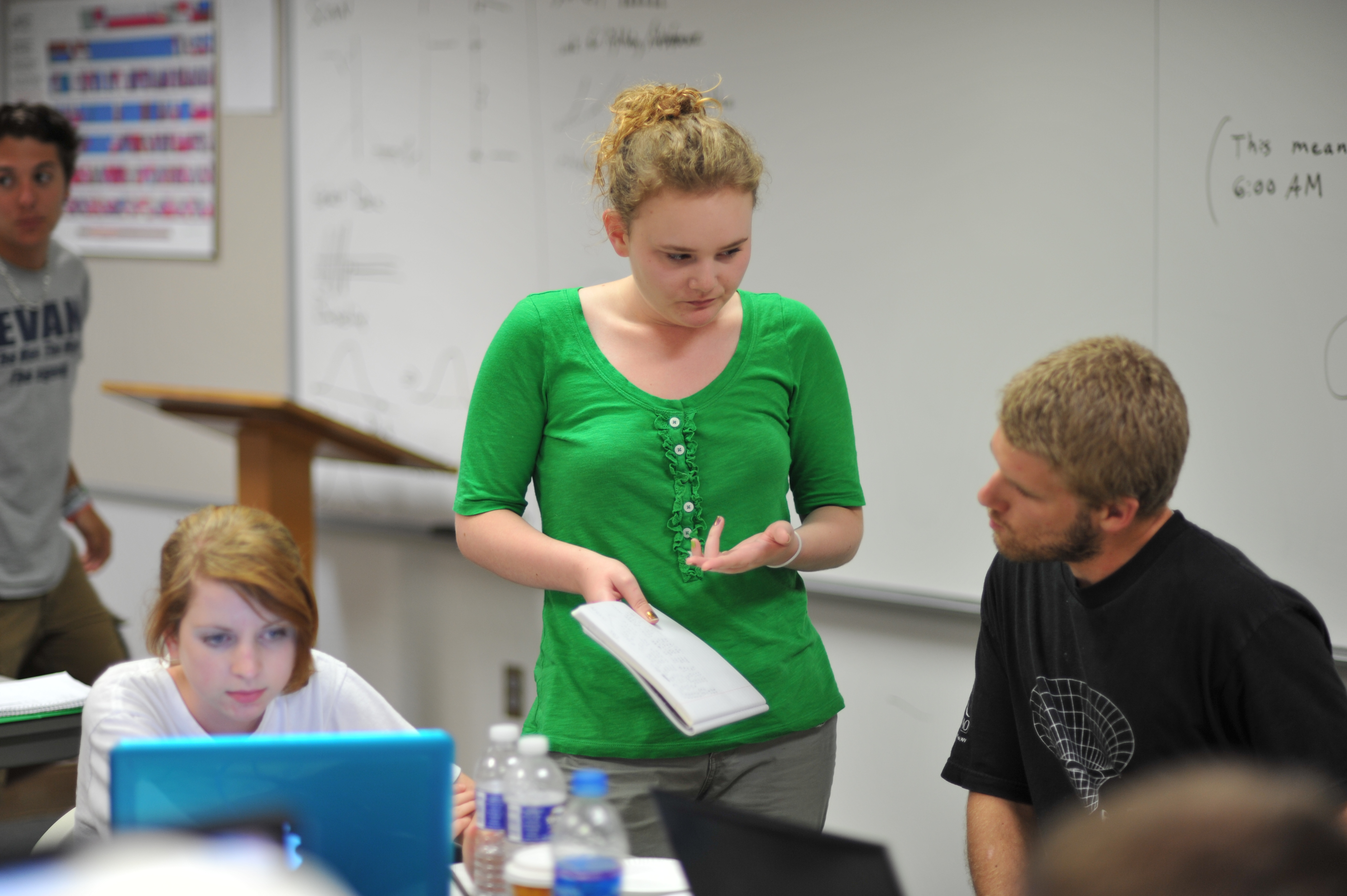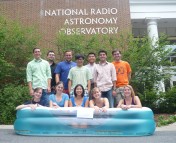We have talked a number of times on here about NSF Research Experience for Undergraduates (REU) programs. But what if you want to stay at your undergraduate institution for the summer doing research? You know that professors are doing research and working with other students, but how do you get involved? Here are some ideas and thoughts about how to navigate this process.
Ready…
There are a few things you can do before you even begin talking to professors to prepare yourself:
- The first step is to learn what kind of research is happening in your department. The departmental website is a great place to figure this out. Most professors will have a description of their research on their website. Read through the descriptions and see what sounds interesting. However, do be warned that sometimes these sites are not kept up to date.
- Talk to undergraduate students or graduate students to find out about their experiences working with various professors. Learn about different projects your fellow students are working on. This is especially helpful when websites are not kept up to date. Students are sometimes listed on the professor’s website or just ask around.
- Do what you can to learn about current research. Most of what you will learn in your introductory classes is pretty old stuff. Starting to understand what researchers are doing now will give you a leg up. Hint: Reading Astrobites is perfect for this!
- Getting paid to do research is always preferable, so it doesn’t hurt to start looking for options before even talking to a professor. Many universities offer summer research funds for students. Or check out what local internship programs or grants are available.
Get set…
Have some ideas about what professor you might want to work with? Now you are ready for the next step.
- Contact the professor via email or in person if you already know them to set up a meeting to discuss working together. The earlier you can do this the better, as it will give you time to meet, discuss, and think about good projects.
- Do not get discouraged if a professor does not respond to your email. Professors are busy and sometimes forget to respond to emails or have other reasons for not responding. If this happens, either try once more or go ask another professor.
- When you meet with the professor, here are some tips and questions you might ask:
- Having a resume/CV with you is useful to give them some idea of your background. If they know which classes you have taken, they will have a better idea of reasonable projects for you.
- Ask how you can prepare yourself to do research with them. Perhaps there are relevant classes you should take that would be helpful. Or you might be able to get a jump start by learning a new programming language to prepare for the summer. Or the professor might have ideas of other short programs you could participate in to begin learning about research.
- Ask about possible projects they have in mind. Professors nearly always have a number of projects they are thinking about attempting. Take notes so that you can look deeper into the ideas afterwards and pick one that sounds interesting to you.
- Ask about expectations. What are the work hours? How often you will meet with the professor? Will you be working more closely with the professor or a graduate student? Is there a possibility this project could be continued into the school year? Will you get to publish your results in a scientific journal? It is best to be clear and communicate about these things early.
- See if you can sit in on any upcoming events the professor has scheduled. Perhaps there is a remote observing run you could watch from campus or a meeting to discuss the status of other student projects. This will give you a better idea of how the professor works with students and what projects are currently happening.
- Money. It does not hurt to ask if the professor will have money to pay you. This is where it helps to have an idea of funding available from your school. The professor will probably know about other options, too. You can work with the professor to put together a proposal to get some money.
- When deciding on a project, think about whether it has a well defined beginning and end. This is important so that you know where the project is going. It might be helpful to work with the professor to write a few paragraphs about the project and its motivation and goals.
- After meeting with a professor, they might not have immediately offered you a position doing research. That’s okay. Listen to what they say and ask how you can prepare yourself to work with them in the future.
GO!
Congratulations! You got a position doing research with a professor. But now what? There are a few ways to get ready for doing research:
- Continue doing some reading about the project you will be working on. But remember that you are not expected to know everything.
- Suggestions on making the most of an REU are definitely applicable to making the most of any summer research.
- Here is some advice on the importance of enjoying research.
- You got awesome results and get to go present at a conference? Make the most of that too!
For those with multiple offers
Some of you might be fortunate enough to have the option of taking a REU or staying at your home institution for summer research. How do you decide? Here are some pros and cons of both options:
- If you stay at your home institution, it is more likely you will be able to continue the research during the school year. This freedom opens up new, more involved projects to you. It is possible to do this with a REU, but more difficult.
- A benefit of a REU is that they give you a different experience than your home institution. Smaller schools, larger schools, national labs, large observatories, and museums all have a different atmosphere. Trying out something besides where you go to school might be beneficial when thinking about career ambitions.
- Doing a REU opens up networking options and can result in a positive letter of recommendation from someone outside your institution in addition to the letter you plan to get from your favorite professor at your home institution. If you do a REU at a place that has a graduate program, it might give you a leg up if you decide to apply there for graduate school. Plus, it never hurts to know more people in the field.
- A REU might offer you research options not available at your home institution. There are benefits to trying out different research areas offered by participating in a REU. There are different benefits of working with one professor for a longer period of time. You will have to figure out this balance.
Hopefully this has given you some ideas about how to get involved with undergraduate research at your home institution. Different schools have different methods of accomplishing this goal, so make friends and learn from others. Persistence is also a key element of this game. Do not get discouraged if one professor tells you no. If they say no, they might have ideas of other professors taking students. Keep asking around.
Special thanks to all the Astrobites authors who contributed ideas for this post.



Trackbacks/Pingbacks